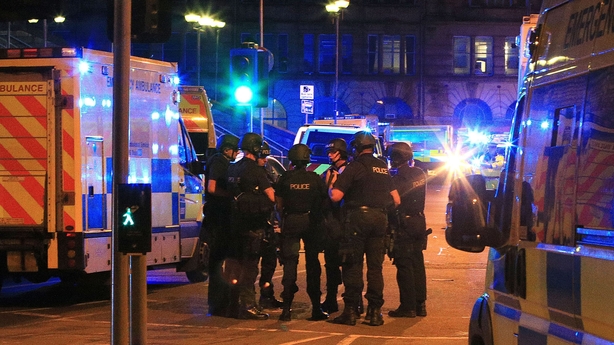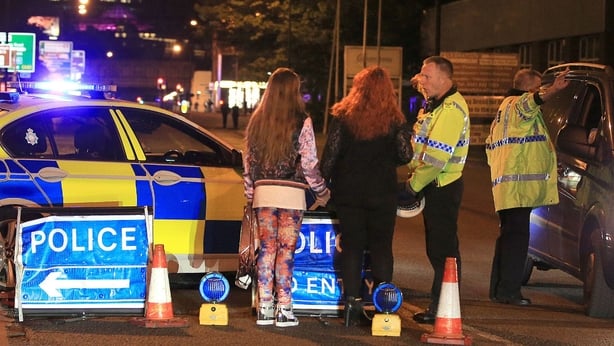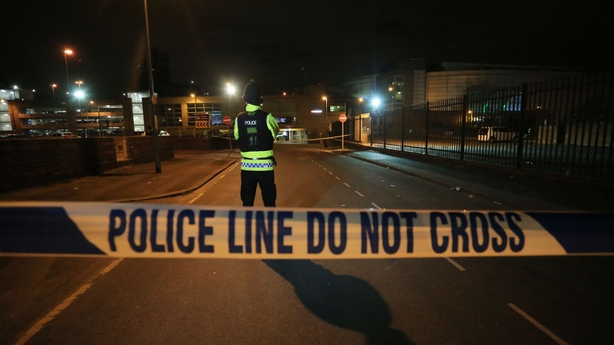A report into last year's Manchester Arena attack has found that the fire service was "outside of the loop" of the police and ambulance emergency response leading to a two-hour delay, a major report said today.
Firefighters, some who heard the bomb go off, and trained in first-aid and terror scenarios with specialist equipment, did not get permission to go to the scene until hours after the suicide bombing, despite the nearest station being half a mile away.
"Strategic oversights" by police commanders led to confusion with other 999 services over whether an "active shooter" was on the loose.
Poor communications between Greater Manchester Police (GMP) and Greater Manchester Fire and Rescue Service (GMFRS) meant the "valuable" assistance of fire crews was delayed by two hours and six minutes after the bombing, which left 22 dead and scores injured.

The 226-page report by Lord Bob Kerslake, was commissioned by Andy Burnham, the Mayor of Greater Manchester, to assess the preparedness and emergency response to the attack on last year.
No individuals are named but the report, released today, makes 50 recommendations.
The panel of experts state they are not able to say whether earlier arrival of the fire service would have "affected any casualty's survivability".
"This is a question that only the coronial inquests can decide," the report said.
But it says fire fighters "would have been much better placed to support and, potentially, to accelerate the evacuation of casualties from the foyer," if they had gone to the scene.
Suicide bomber Salman Abedi detonated his home-made device at 10.31pm on 22 May last year, in the foyer of Manchester Arena as 14,000 people streamed out at the end of an Ariana Grande concert.

Officers from British Transport Police were on scene one minute later and declared a major incident by 10.39pm.
The police duty inspector in the Greater Manchester Police control room declared Operation Plato, a pre-arranged plan when it is suspected a marauding armed terrorist may be on the loose - and assumed, wrongly, other agencies were aware.

But he was praised for taking one of the most crucial "life or death" decisions of the night, a "key use of discretion" to over-ride the rules and allow paramedics and police already on scene to continue treating the injured even though they may be in danger of further attacks.
GMFRS and the North West Ambulance Service (NWAS) were only informed an hour- and-a-half later, and by then Operation Plato was effectively put on "stand by" as it emerged the attack was from a single suicide bomber and not the prelude to further armed attacks.
Armed police and 12 ambulances were on the scene within 20 minutes but there was a shortage of stretchers to ferry the injured from the foyer to a casualty area on the concourse of Manchester Victoria Station, under the arena.
The senior fire officer on duty, a national inter-agency liaison officer, came to believe an "active shooter" scenario was still in play and stuck to rules which dictate keeping emergency responders 500 metres away from any suspected "hot" zone of danger from a potential armed terrorist.
It was "fortuitous" the NWAS were not informed - otherwise they may have pulled out their paramedics and instead they stayed and "lives were saved" the report said.
As the fire officer could not get through on the phone to the police force duty officer the response of the fire service was, "brought to the point of paralysis" to the "immense frustration on the firefighters' faces."

Instead of rushing to the scene to help, fire crews and a special response team, trained to deal with terrorist incidents, rendezvoused at a fire station outside the city centre.
And while a joint strategic co-ordinating group of emergency response services and others gathered at GMP HQ in east Manchester, GMFRS chief fire officer Peter O'Reilly, who has now retired, focused his senior officers at their own HQ in Salford, which played a "key role" in delaying the response further.
The report says it hopes a scenario of different services control rooms not being able to properly pass critical information between them, "will never happen again".
'Shock' and 'dismay' at behaviour of some medai
The behaviour of some media has been criticised in the Kerslake Report.
The child of one family was given condolences on the doorstep by a journalist before official notification of the death of her mother and, in another incident, a note was put in a biscuit tin and sent into a hospital ward offering £2,000 for information, the report states.
Journalists also allegedly impersonated a bereavement nurse and a police officer, to get information, it was claimed.
The report said: "The panel was shocked and dismayed by the accounts of the families of their experience with some of the media.
"To have experienced such intrusive and overbearing behaviour at a time of enormous vulnerability seemed to us to be completely unacceptable.
"We were concerned to identify what might be done to prevent this happening again in any future terrorist event."
The report said people talked about feeling "hounded" and "bombarded" as news crews from across the UK and around the world descended on Manchester.
One mother, who was seriously injured, as was her daughter, spoke of the press ringing her on her mobile whilst she was recovering in hospital.
At the Etihad Stadium where families of the missing and injured gathered, there were concerns with people feeling accosted by media crews and several told of the physical presence of news crews outside their homes.
One mentioned the forceful attempt by a reporter to gain access through their front door by ramming a foot in the doorway.
In the case of one family, the daughter was visited by a reporter at their home and given condolences on the death of her brother whilst her parents were at the Etihad Stadium on the morning following the attack.
The family were not told officially that their son was likely to be among the fatalities until later that day.
The report said although families referred to reporters saying they were from individual news organisations, it is not possible to say for certain who individuals were working for - so the report does not identify individual newspapers or broadcasters.
The report recommends media regulator the Independent Press Standards Organisation takes action on the "completely unacceptable" behaviour by reviewing its code of conduct.

